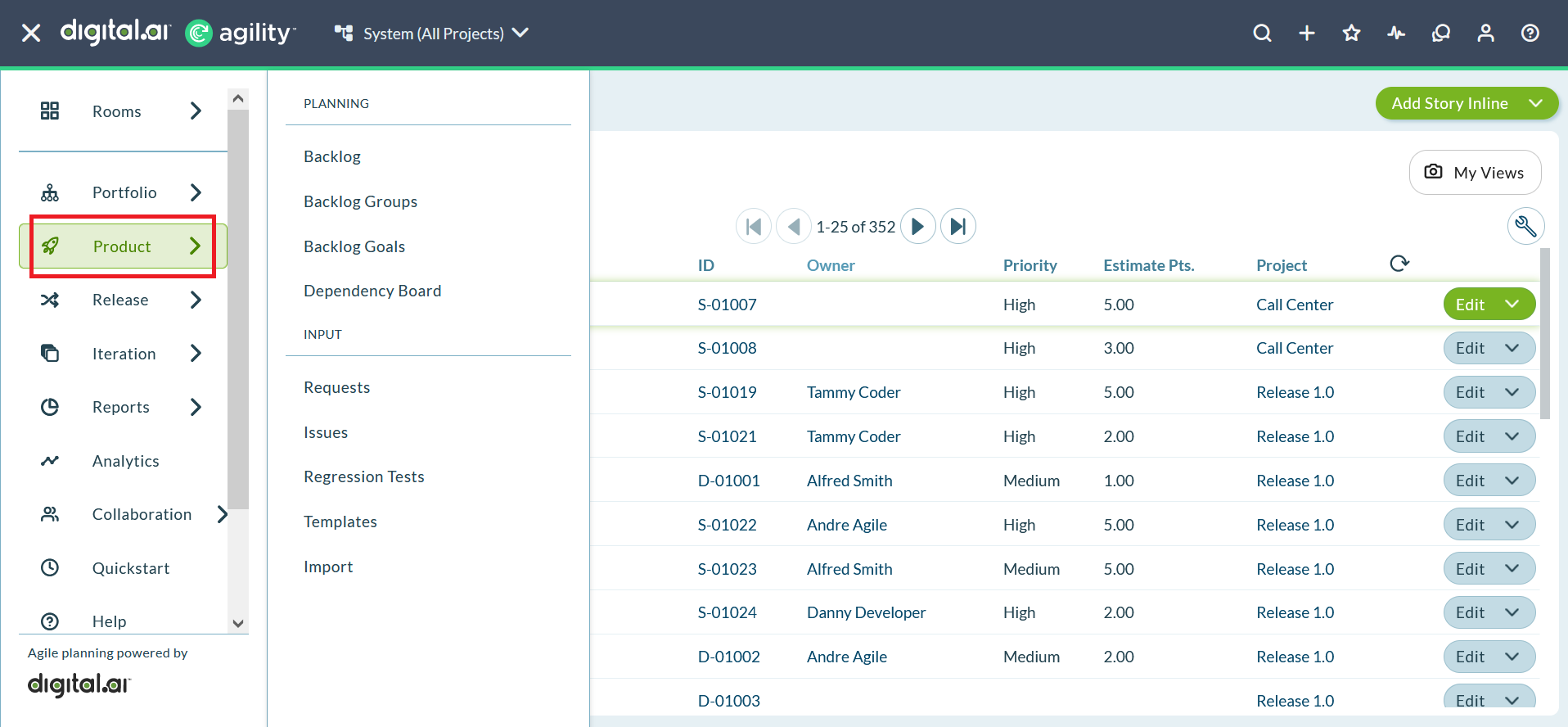Product
During product planning, product owners identify and organize the Backlog, gets estimates from the development team(s) and then ranks the backlog. Building a good backlog involves managing the backlog items, test sets, defects, and any other associated assets that define the updates going into to the product.
Accessing the Product
To access the product planning features, click the hamburger icon > Product.

Keeping the backlog current, well-organized and well-groomed is an ongoing process as factors change during the course of a release or project.
Reporting
Get the information you need to make longer-term commitments and predictions through these reports.
- Backlog Group Roadmap Report
- Detail Roadmap Report
- Estimate Trend Report
- Parking Lot Report
- Portfolio Item Bubble Chart Report
- Project/Release Roadmap Report
- Quicklist Reports
- Request Trend Report
- Story Velocity by Risk/Complexity Report
- Story Velocity by Type Report
- Story/Backlog Item Velocity by Risk Report
- Velocity Trend Report
- Velocity by Date Report
- Velocity by Priority Report
- Velocity by Project Report
- Velocity by Status Report
- Workitem Cycle Time Report
- Workitem Dependencies Visualization Report
- Workitem Trend Report
Related concepts
Understanding Digital.ai Agility User Interface
Understanding Roles and Project Membership
Understanding System (All Projects)
Related tasks
Tracking Your Work in the My Home Menu
Using Tasks to Breakdown Stories Backlog Items
Selecting Data Using the Context Navigator
Adding or Assigning a Member to a Project